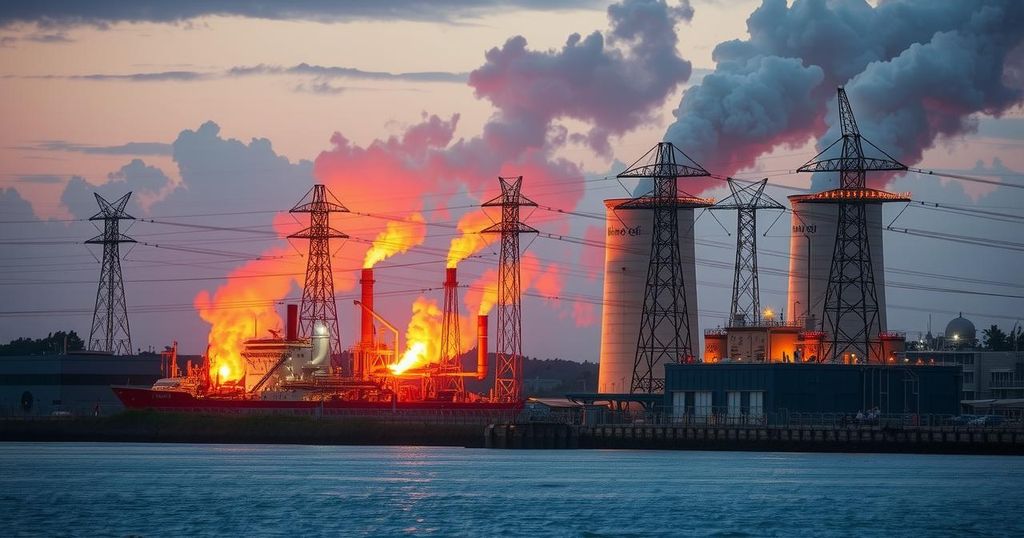World news
AFP, AFRICA, BMA, BORDER MANAGEMENT AUTHORITY, DANIEL CHAPO, ELECTORAL COMMISSION, ELECTRICIDADE DE MO, ELECTRICIDADE DE MOCAMBIQUE, FILIPE NYUSI, FR, FRELIMO, MONDLANE, MOZAMBIC, MOZAMBICAN, MOZAMBIQUE, OPPOSITION, PODEMOS, POLITICS, PROTEST, PROTESTS, SOUTH AFRICA, VENANCIO MONDLANE
Ethan Kim
0 Comments
Mozambique Protests Following Elections Disrupt Power Supply
Post-election protests in Mozambique have led to the shutdown of two power plants due to demands from demonstrators for their closure. The unrest follows claims of electoral fraud after the ruling Frelimo party’s disputed victory. This disruption results in a 30% shortfall in energy supply, affecting millions, while the opposition seeks validation of their electoral claims amid escalating tensions.
Protests following Mozambique’s recent elections have disrupted operations at two power plants, raising concerns about the national energy supply. The ruling Frelimo party declared victory in the October 9 elections, a claim vehemently opposed by the opposition, which alleges electoral fraud. Responding to the unrest, Electricidade de Mocambique announced the halting of production at the Ressano Garcia and Gigawatt thermoelectric plants, fearing potential repercussions from demonstrators demanding their closure. This disruption has resulted in a significant energy shortfall affecting around six million residents in the southern region.
The protests intensified amid claims of attempted assaults on opposition candidate Venancio Mondlane, who is currently abroad after disputing the election results and seeking refuge in South Africa. As unrest escalates across various districts, authorities have implemented variable restrictions within the capital, Maputo, while neighboring South Africa has enforced intermittent border closures in compliance with Mozambican government directives.
Despite the Electoral Commission’s declaration that Frelimo’s Daniel Chapo won approximately 71 percent of the vote, Mondlane contests these results, stating alternative counts favor his own support. The imminent confirmation of the election results by Mozambique’s Constitutional Council remains pending, amidst allegations of significant irregularities scrutinized by international observers.
The backdrop to the current protests lies in Mozambique’s recent electoral process. The ruling Frelimo party has maintained a significant grip on power since independence in 1975, and the latest elections on October 9 were marked by allegations of fraud from opposition groups. Venancio Mondlane, who claims to have received a larger share of the vote than reported, has become a focal point in the tussle between government supporters and anti-government factions, leading to widespread unrest across the country. The instability has resulted in serious consequences for public utilities and civil order.
In summary, the post-election landscape in Mozambique highlights the deep-seated tensions between the ruling party and the opposition, exacerbated by allegations of fraud and civil unrest. The shutdown of key power plants due to protests illustrates the broader impact of this political strife on essential services. The situation remains fluid as the Constitutional Council prepares to address the disputed election results, while the civil unrest continues to pose a dire threat to public safety and national stability.
Original Source: www.barrons.com




Post Comment